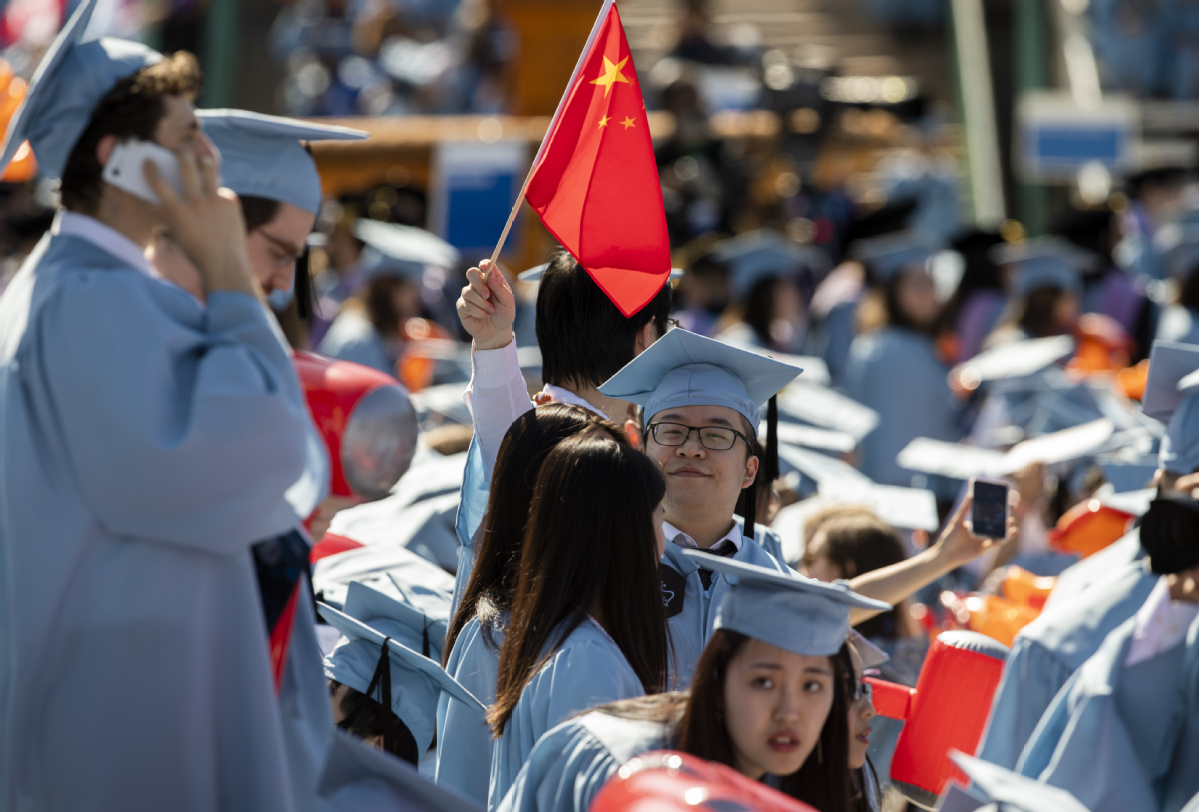Overseas graduates eligible for civil posts
By Wang Xiaoyu | China Daily | Updated: 2023-10-27 09:51

Graduates returning from some prestigious higher education institutions overseas will be eligible to apply for civil service positions in some regions, through a dedicated channel that was previously only reserved for their counterparts from topnotch domestic colleges, according to several local governments.
In China, there are mainly two ways for fresh graduates to compete for a government job. The majority of young applicants sit the highly competitive annual national-level or provincial-level examinations for civil servants.
In the latest round that took place in January, there were more than 1.95 million applicants, with about one in 41 being recruited.
The other approach is to enroll in a program that will send applicants to grassroots positions in rural or less-developed areas for two to three years. Part of the appeal lies in that they are more likely to be assigned higher-level positions upon returning.
The second approach, commonly referred to as the "selected and assigned graduates", also carries additional requirements, including that applicants must be a member of the Communist Party of China, hold a leadership role in student unions on campus or have been awarded national-level scholarships that are closely associated with academic grades.
For years, the channel was only accessible to graduates from elite universities in China, such as Peking University and Tsinghua University in Beijing and Fudan University in Shanghai.
However, a growing number of provincial-level authorities have announced slots for returnees from overseas in recent years.
For instance, officials in Sichuan province in Southwest China said earlier this month that it will recruit a number of new graduates from overseas with majors in urgently needed fields through the "selected and assigned graduates" track.
Applicants need to have majored in one of 24 fields of study, such as electronic information, equipment manufacturing, digital economy, modern agriculture and aerospace engineering.
They are also expected to graduate from a list of 52 foreign universities and two from the Hong Kong Special Administrative Region. The list consists of Ivy League universities and other prestigious campuses in the United States, as well as a few in Canada, the United Kingdom, France, Australia, Japan, Singapore and more.
The Shanghai government said that in the openings for 2024, overseas returnees from 73 colleges outside the mainland can apply.
Beijing has broadened the eligibility to all new graduates from the top 100 universities overseas. The ranking will depend on the 2023 Academic Ranking of World Universities that was released by Shanghai Ranking Consultancy this year.
Other provinces that have announced they will accept overseas returnees include the provinces of Guangdong, Shandong, Henan, Hebei, Shanxi, Yunnan as well as Chongqing.
Wang Yukai, a professor at the National Academy of Governance, told China Newsweek that allowing young people with overseas study experiences to join the government system will bring positive outcomes.
"Such graduates are likely to have a broader perspective, and those majoring in the science or technology sector will be able to learn from advanced industries in developed countries and gain more insights into industry development," he said.
Zheng Tian, an engineering major from the University of Texas in Austin, said the policy change gives her one more choice for her future career and she will probably put in an application.
























